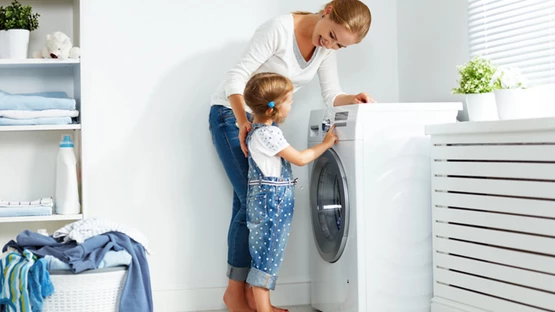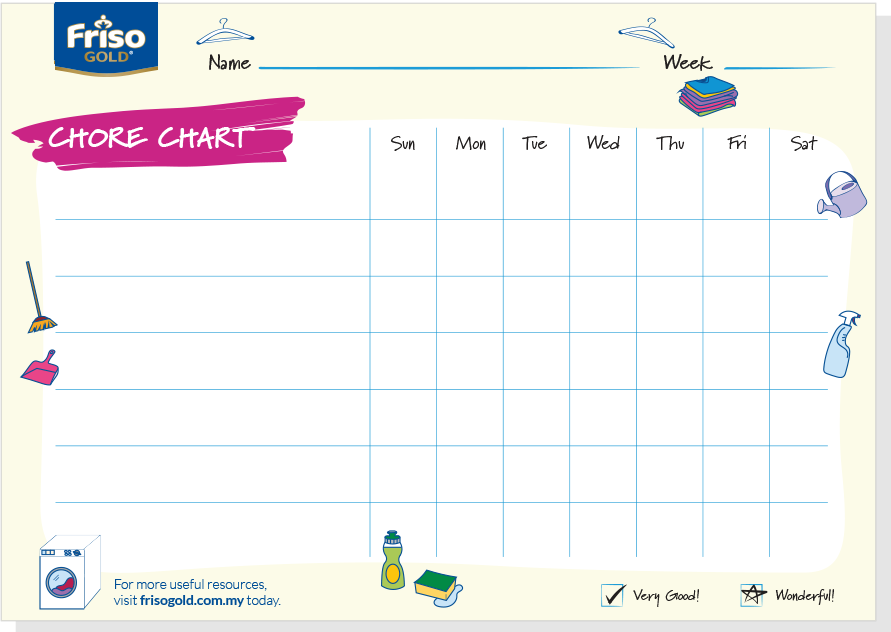Why Children Are Best Kept Outdoors
“If you’re the parent of a young child, you probably already know many.... read more

But first, here are some guidelines for you so you can make this a fruitful experience for your child:
A cleaning plan
Print out our chore chart and fill in the boxes with tasks. Depending on his age, here are some chores you could consider:
Gold star stickers never hurt too, so reward generously and show him how pleased you are with his hard work!

Get your own chore chart here
RELATED ARTICLES


